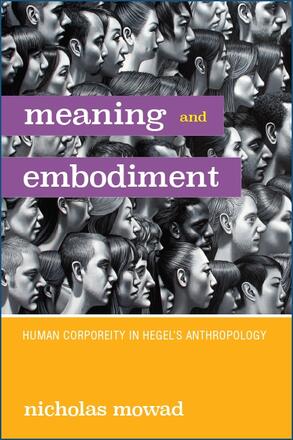
Meaning and Embodiment
Human Corporeity in Hegel's Anthropology
Alternative formats available from:
Examines Hegel's insights regarding the complexity and significance of embodiment in human life, identity, and experience.
Description
Meaning and Embodiment provides a detailed study of Hegel's anthropology to examine the place of corporeity or embodiment in human life, identity, and experience. In Hegel's view, to be human means in part to produce one's own spiritual embodiment in culture and habits. Whereas for animals nature only has meaning relative to biological drives, humans experience meaning in a way that transcends these limits, and which allows for aesthetic appreciation of beauty and sublimity, nihilistic feelings of meaninglessness, and the complex and different systems of symbolic speech and action characterizing language and culture. By elucidating the different forms of embodiment, Nicholas Mowad shows how for Hegel we are embodied in several different ways at once: as extended, subject to physical-chemical forces, living, and human. Many difficult problems in philosophy and everyday experience come down to using the right concept of embodiment. Mowad traces Hegel's account through the growth and development of the body, gender and racial difference, cycles of sleep and waking, and sensibility and mental illness.
Nicholas Mowad is Professor of Philosophy at Chandler-Gilbert Community College.
Reviews
"…Mowad's study is a compelling and worthwhile investigation that makes a significant contribution to both the fields of Hegel studies and contemporary philosophy of race and gender for its original and thought-provoking insights on Hegel's Anthropology." — Journal of the History of Philosophy
"This book offers a lucid explanation of very difficult Hegelian concepts in clear language, along with a passionate, searing, provocative, and intelligent foray into questions of race and gender." — Lydia Moland, Colby College